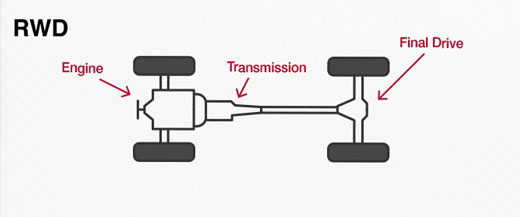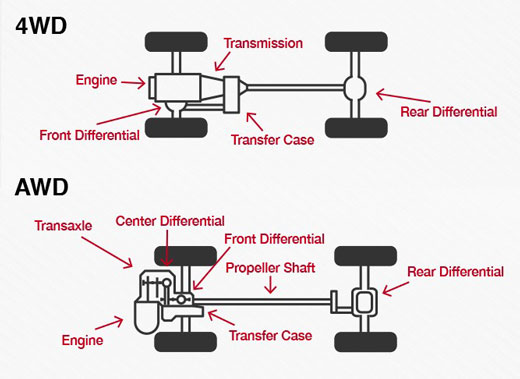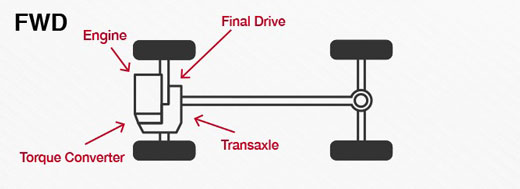Signs of a Failing Driveshaft
From trucks and SUVs to compact cars and sedans, your vehicle’s transmission system helps power you down the road. Also referred to as the driveshaft, the transmission is responsible for allowing your car to shift from idle to drive.
A bad or failing driveshaft can make it difficult to control your vehicle. Read on to learn what signs and symptoms you should be on the lookout for. If your car exhibits any of these conditions, a trip to your mechanic is in order; they have the know-how to diagnose and fix your driveshaft problems.
What are the different types of transmission system?
The type of vehicle you drive dictates what kind of transmission system is in your vehicle. There are different systems for rear-wheel drive, four-wheel drive and front-wheel drive vehicles.
Rear-wheel drive (RWD)
In a rear-wheel drive vehicle, the rear wheels deliver the power. A long driveshaft is connected to the transmission on one end and the differential on the other end by universal joints.

Four-wheel (4WD) or all-wheel drive (AWD)
On a typical four-wheel drive or all-wheel drive vehicle, there are two driveshafts. There is the same driveshaft that is on a rear-wheel drive car but there is also an additional front driveshaft that is connected to the front differential and the transfer case by u-joints.

Front-wheel drive (FWD)
On a front-wheel drive vehicle, the front wheels provide the power. Instead of having a long driveshaft like on a rear-wheel vehicle, all the transmission components are in the front of the vehicle. Rather than using universal joints, this setup uses constant velocity (CV) joints.

Signs of a bad driveshaft/transmission
1. Vibrations from under the vehicle –
A common symptom of a failing driveshaft is an intense shaking coming from underneath the vehicle. Worn out u-joints or bushings can cause the driveshaft to vibrate. If you don’t get the u-joints or bushings serviced, it can lead to further damage to other transmission components. Please note that tire problems can also cause vibration problems, but it’s easy to tell them apart. Vibrations caused by tire balance issues are speed sensitive while driveshaft vibrations aren’t.
2. Difficulty turning –
If you’re having trouble making turns, it could be a driveshaft issue. A failing driveshaft can prevent the wheels from properly turning, making it difficult to control the vehicle.
3. Loud clunking noise –
If you hear a loud clunking noise when shifting your vehicle, this is another sign of driveshaft damage. The likely culprit is a worn u-joint.
4. Car shudders upon acceleration –
If you experience shuddering when accelerating from a stop or low speed, a loose u-joint or bad center bearing could be to blame.
5. Squeaking noise –
Not just annoying, a squeaking noise at low speeds can be caused by a u-joint that needs lubricating. A little bit of grease will get rid of the noise.
6. Clicking or knocking noise –
Can indicate a worn or failing CV joint. See your mechanic for a repair.
Learn more about RYDW auto parts manufacturer in china, find your car part.
We will do a good job in every content,do our best to solve the problem for each customer,Thank you for your reading.




Leave A Comment